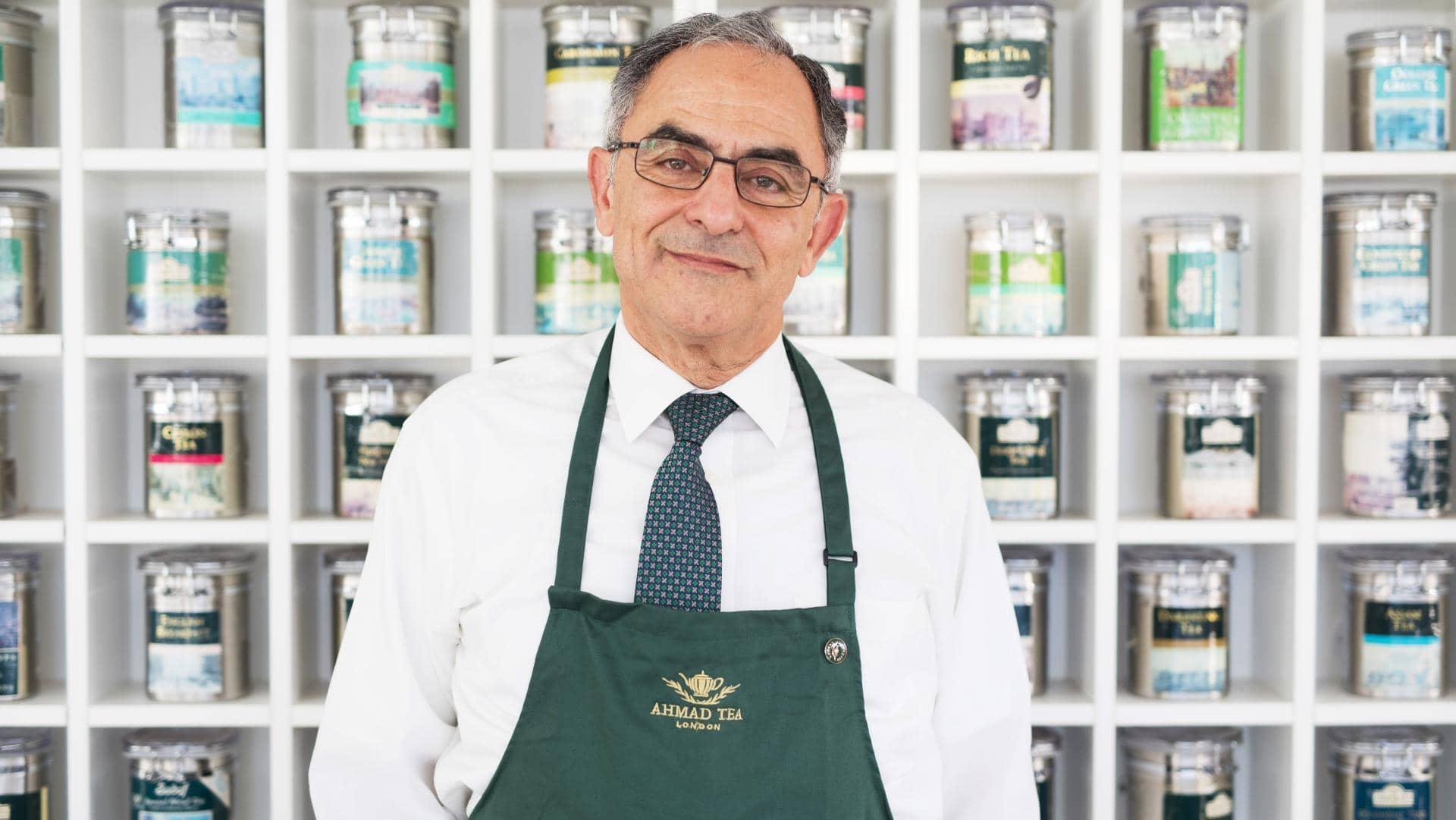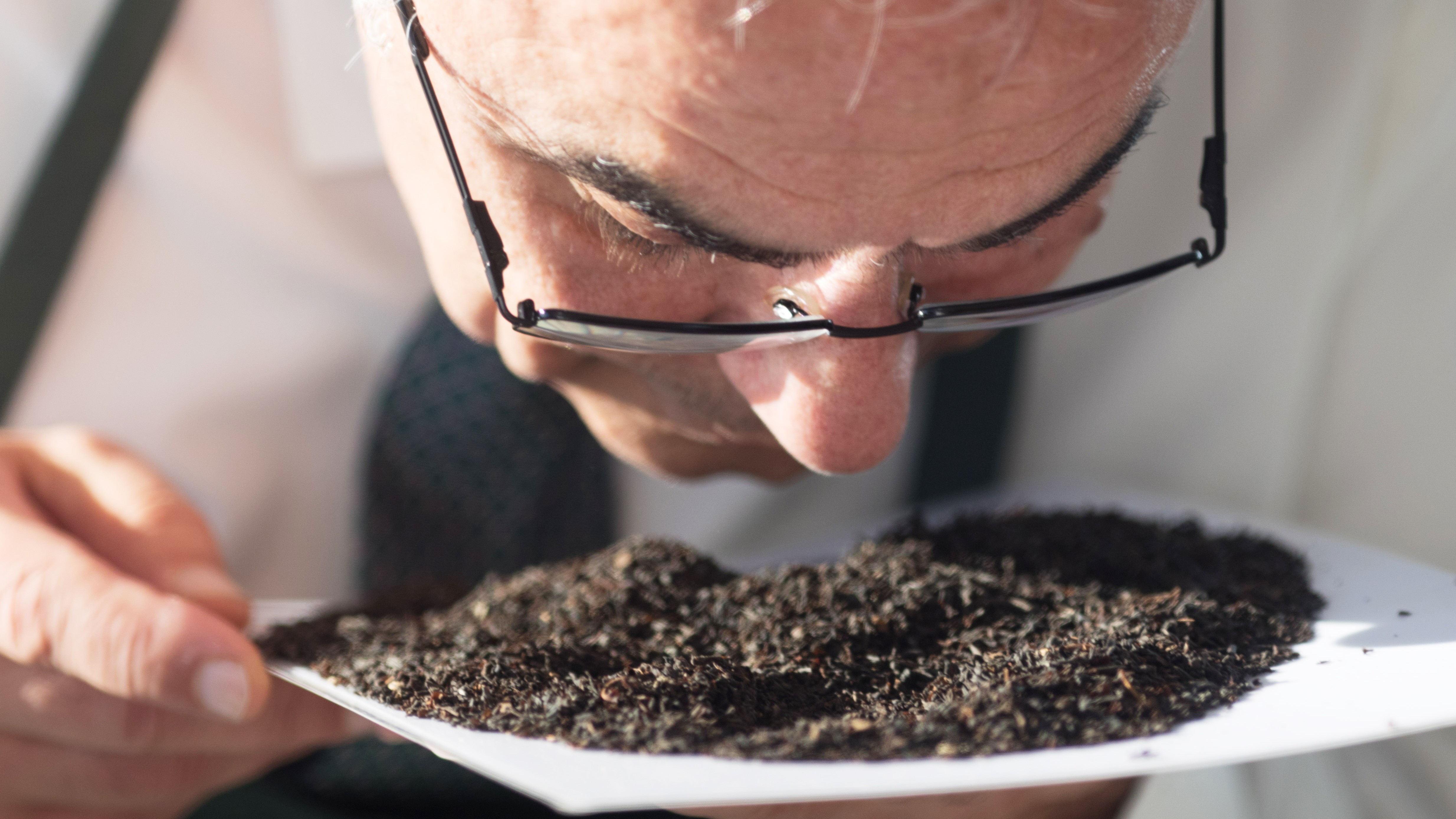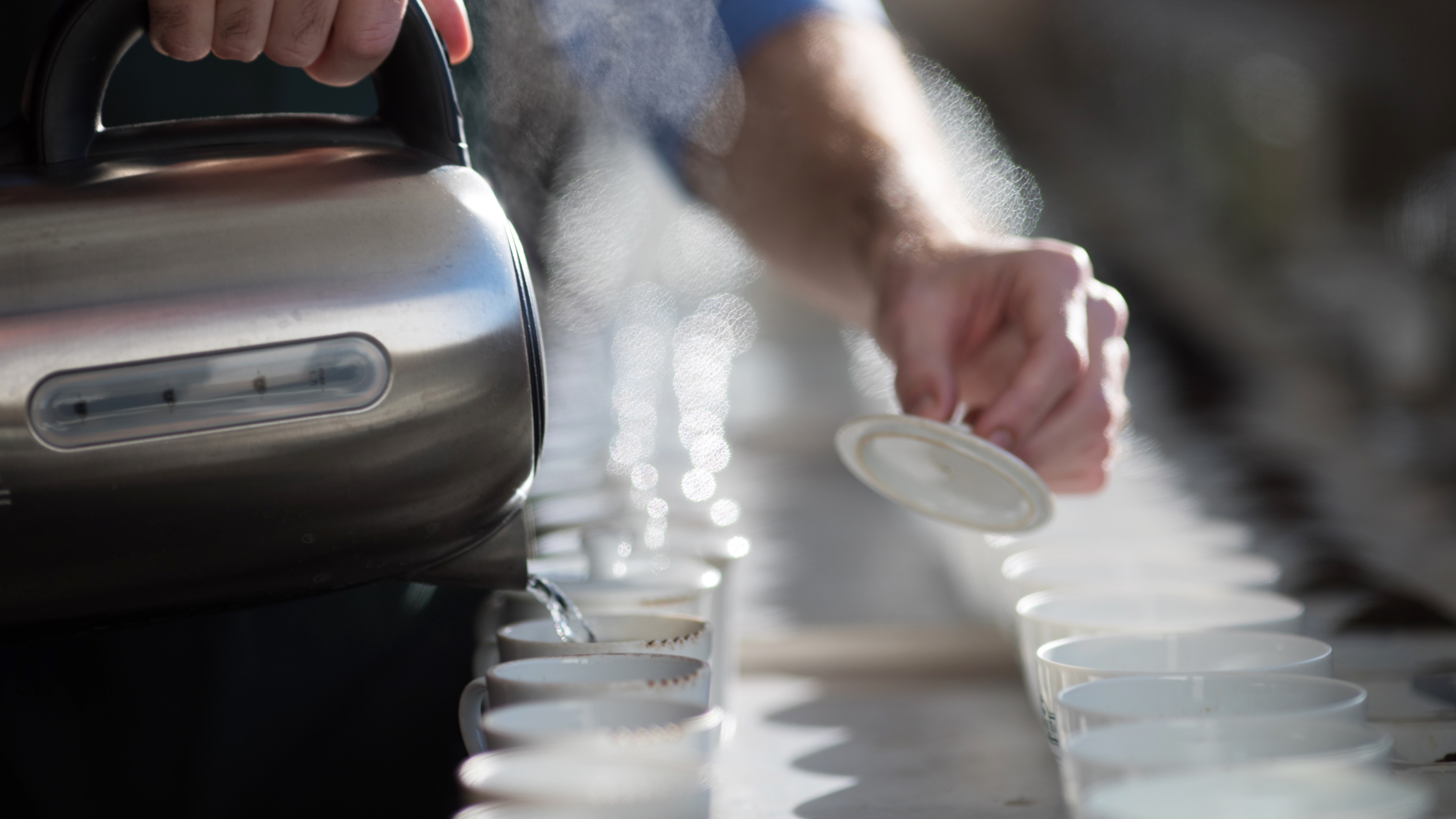
Banking on the right blend
Tea is the most international – and somehow also the most British – of products. We look at Barclays’ connection with Hampshire-based Ahmad Tea, a relationship that’s been brewing for more than 30 years.
As head of an international business, Rahim Afshar – known to his 70 staff in Hampshire and 1,000 worldwide as ‘Mr Rahim’ – wears a variety of hats. The Founder and Managing Director of Ahmad Tea, which blends and distributes tea to more than 80 countries, also acts as “chief taster”. The hub of the business, headquartered at Chandler’s Ford near Southampton, is the tea tasting room, which is yards from Rahim’s office. “My philosophy,” he says, “is that I will not approve anything for sale that I would not drink at home.”
This emphasis on quality has helped the company grow into a £40m turnover business since it was founded in 1986. Prior to that, Rahim, who hails originally from Persia, ran a tea boutique in Southampton – which provided useful market research for his later business: “The idea was to get a deeper understanding of consumer tastes and preferences.
"It was a good experiment for us to find out what people like, and I found that the key to our success was quality. Tea is the cheapest drink other than tap water, and there’s no need to compromise when it comes to quality. We went for the top quality, because that’s still not too expensive.”
Rahim set up a small production facility hand-packing gift items, and began cementing a relationship with Barclays that has lasted over 30 years: “When we started Ahmad Tea in the UK, we opened an account with Barclays. Before that, I had my personal account with Barclays, so I chose the bank because of their international reputation and also my personal experience. Barclays and their managers, with the relationship we’ve had, have been extremely good sources of information.”
Rahim says that, since opening an account at the Southampton Central branch, “all the Barclays managers we’ve had have come in with a lot of business experience and knowledge, and that type of prospective knowledge and understanding of what our business is about has created the conditions for our business to be successful. Communications have helped a lot in understanding our business and how to provide the kind of services that are very important in our growth.”

From the early stages of the relationship, Barclays was instrumental in helping with export documentation and advice with currency exchange. Rahim explains: “When we asked to have a bill of lading at the beginning of our relationship, that went very smoothly. Later, with cash against documents, it all happened without delay. Then, when we started working with multi-currencies it worked very well.
"We got overdraft facilities across different currencies, which meant we weren’t forced to exchange the money when we didn’t find the rate favourable. That allowed us to work our currencies favourably and keep export facilities. [Barclays Relationship Director] Stewart Bulpitt has regular meetings with us and is able to give us insights on trading and economic conditions in a variety of markets, which is a huge ongoing advantage for us.”
Local and international
The sheer scope of Ahmad Tea’s markets makes this information particularly valuable. The company sources tea leaves from China, India and Sri Lanka; tasting and blending in the tea tasting room in England, but using the UAE free zone of Ras Al-Khaimah as its processing and export hub.
Rahim says: “We are very international, with factories in the UK, Russia, Ukraine, China and the UAE, serving more than 80 countries. The Barclays facilities that ensure documents are received on time – and that we receive our money on time – obviously help us grow our business.”

The international nature of the business is also evident at Ahmad’s Hampshire head office, where more than 20 languages are spoken, and the proximity to both the port of Southampton and Heathrow airport are key. As a ‘local international’ business that takes social responsibility seriously, Ahmad provides employment and supports charities in Southampton and New Forest, as well as reinvesting in the markets in which it operates. The business recently completed the construction of a cancer hospital in Sri Lanka and is involved in water borehole projects in Niger and orphanages in eastern Europe.
Ahmad Tea has more than 300 different products, and its current focus on growth sees the company concentrating on markets with the biggest potential for expansion – currently north Africa and the USA. “Going forward for any investment, Barclays would be a first port of call,” says Rahim. Pointing to the Middle East, Africa, and the former Soviet Republics, he adds: “There are tough challenges in some of our major markets, but we take the view that challenges are opportunities.”